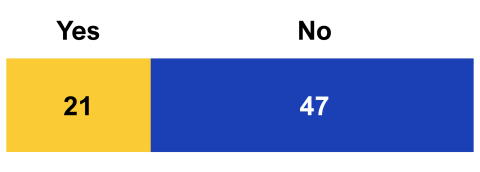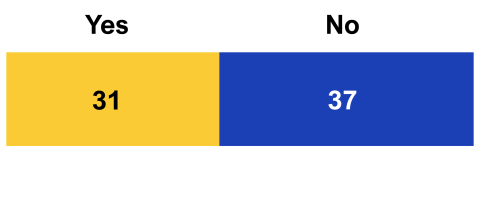The Evidence Working Group of the COLAAB aims to characterize animal methods bias in different research assessment contexts and identify its causes and impacts.
A survey to assess animal methods bias in scientific publishing
In 2023, the COLAAB published the first ever empirical evidence of animal methods bias, results from a survey of researchers about their experiences and perceptions related to animal- and nonanimal-based experiments during the peer review of their manuscripts for publication. The cross-sectional survey with 33 questions was completed by 90 respondents working in various biological fields. After exclusion criteria, data from 68 researchers was analyzed. Twenty-one survey respondents indicated that they have carried out animal-based experiments for the sole purpose of anticipating reviewer requests. Thirty-one survey respondents indicated that they have been asked by peer reviewers to add animal experimental data to their nonanimal study; 14 of these felt the request was sometimes justified, and 11 did not think it was justified.


